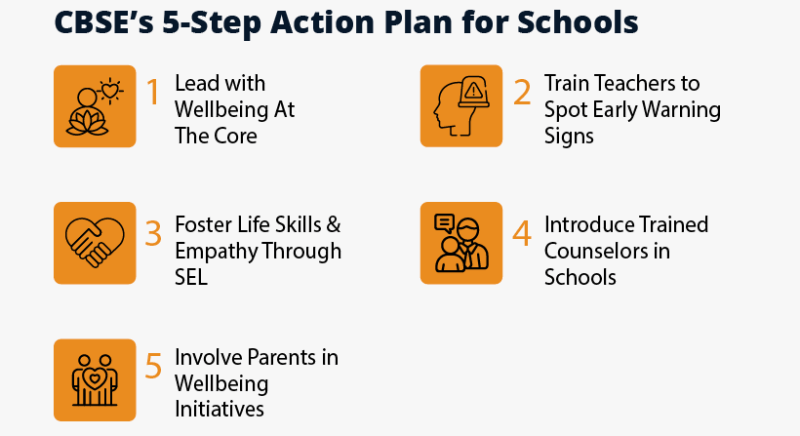
Ever wondered how schools can truly balance learning and wellbeing? NEP 2020 emphasizes that learning isn’t just about grades, it’s about nurturing emotional, social, and mental health alongside knowledge.
On this World Mental Health Day, we explore exactly that with Dr. Manjula Pooja Shroff, Founder Chairperson, MD & CEO, Kalorex Group, who reminds us, “Wellbeing and academics are the two pillars of holistic education. By treating wellbeing as equal to academics, we prepare children not only for exams but also for the uncertainties of the real world”.
In this newsletter, we dive into expert insights and actionable strategies that will help you transform your school into a space where students thrive both academically and emotionally.

NEP 2020 is redefining schools as more than just academic hubs by reframing them as balanced ecosystems where learning and wellbeing go hand in hand. “When schools consistently prioritize student wellbeing, the impact extends far beyond individual classrooms. In the long run, we can expect reduced dropout rates, improved academic consistency, and healthier teacher-student relationships, as students feel supported not just in their learning but in their overall growth”, shares Dr Manjula Pooja Shroff.
Here are four ways schools can prioritize both academics and mental wellbeing, helping students thrive emotionally, socially, and intellectually:
Shift Focus From Marks to Mindset
Nurture a growth mindset in students by encouraging them to set personal learning goals rather than just chasing grades. “Just as we allocate time for physical education to strengthen the body, wellbeing hours can strengthen the mind and emotions. These sessions can include mindfulness practices, open circle-time discussions, creative expression, peer support activities, or guided relaxation”, our expert guest shares.
Ease Exam Stress Through Flexible Assessments
Reimagine traditional assessments by introducing project-based assignments, oral presentations, and flexible deadlines to make evaluation more student-friendly. Supporting NEP 2020 goals, Extramarks Smart Class Plus brings personalized learning paths, Social-Emotional Learning (SEL) modules, and adaptive quizzes to make assessments more engaging, balanced, and easier to student’s minds.
Create Safe Spaces for Students
Students thrive in environments where they feel heard and supported. Dr Manjula emphasizes, “Mental health must be integrated into the culture of the school, woven into daily routines, teaching methodologies, and teacher-student interactions. Programs should be sustained, age appropriate, and supported with trained staff who can identify and address issues early”.
Harness Peer Learning
Integrating group projects, learning circles, cross-grade mentoring and actively involving parents as partners, nurtures consistent support for student’s growth and wellbeing.
“By involving parents as partners, rather than just participants, we ensure consistency between what a child experiences in school and at home. This collaborative approach not only strengthens trust but also fosters a culture where wellbeing is valued equally in classrooms and households, creating a seamless ecosystem of care around every learner”, Dr Manjula shares.
Every student deserves a school where learning is joyful and emotional wellbeing matters. Dr Manjula captures it perfectly, “This World Mental Health Day, let us commit to creating schools where marks and minds grow together, conversations about emotional wellbeing are normalized, and every child feels safe, supported, and empowered to reach their fullest potential”. When schools prioritize emotional wellbeing alongside academics, students gain the confidence to take risks, learn from mistakes, and thrive both socially and academically.



